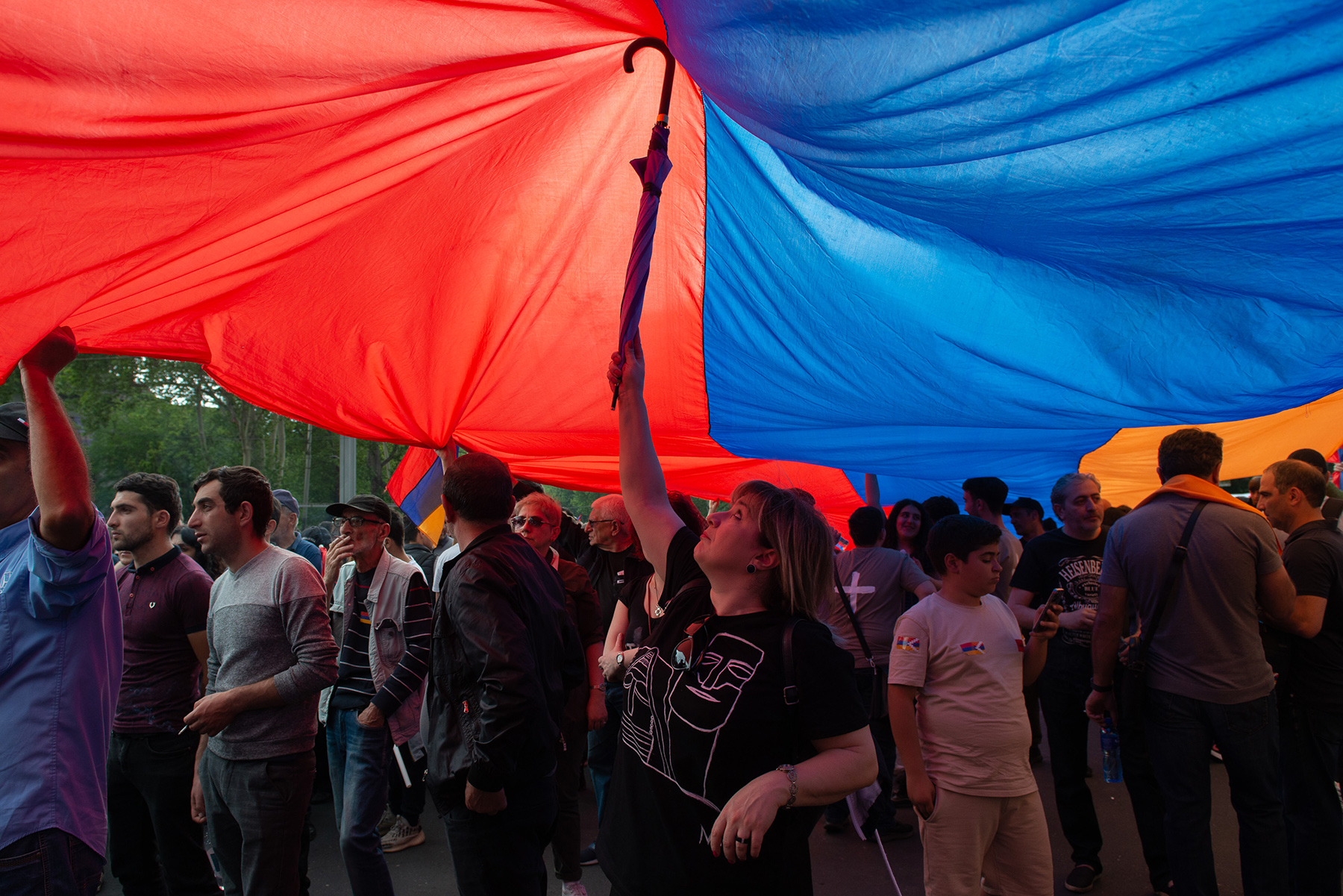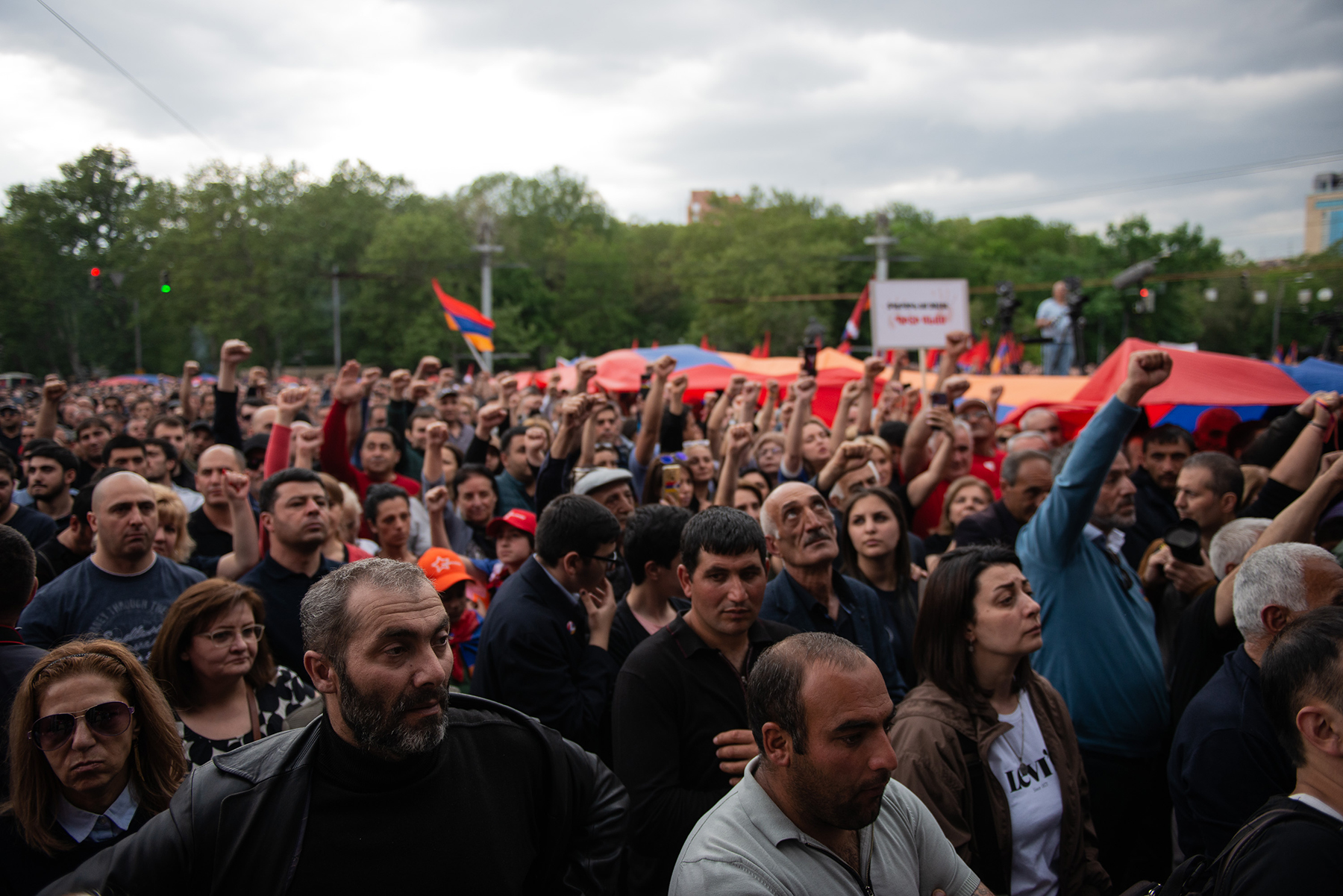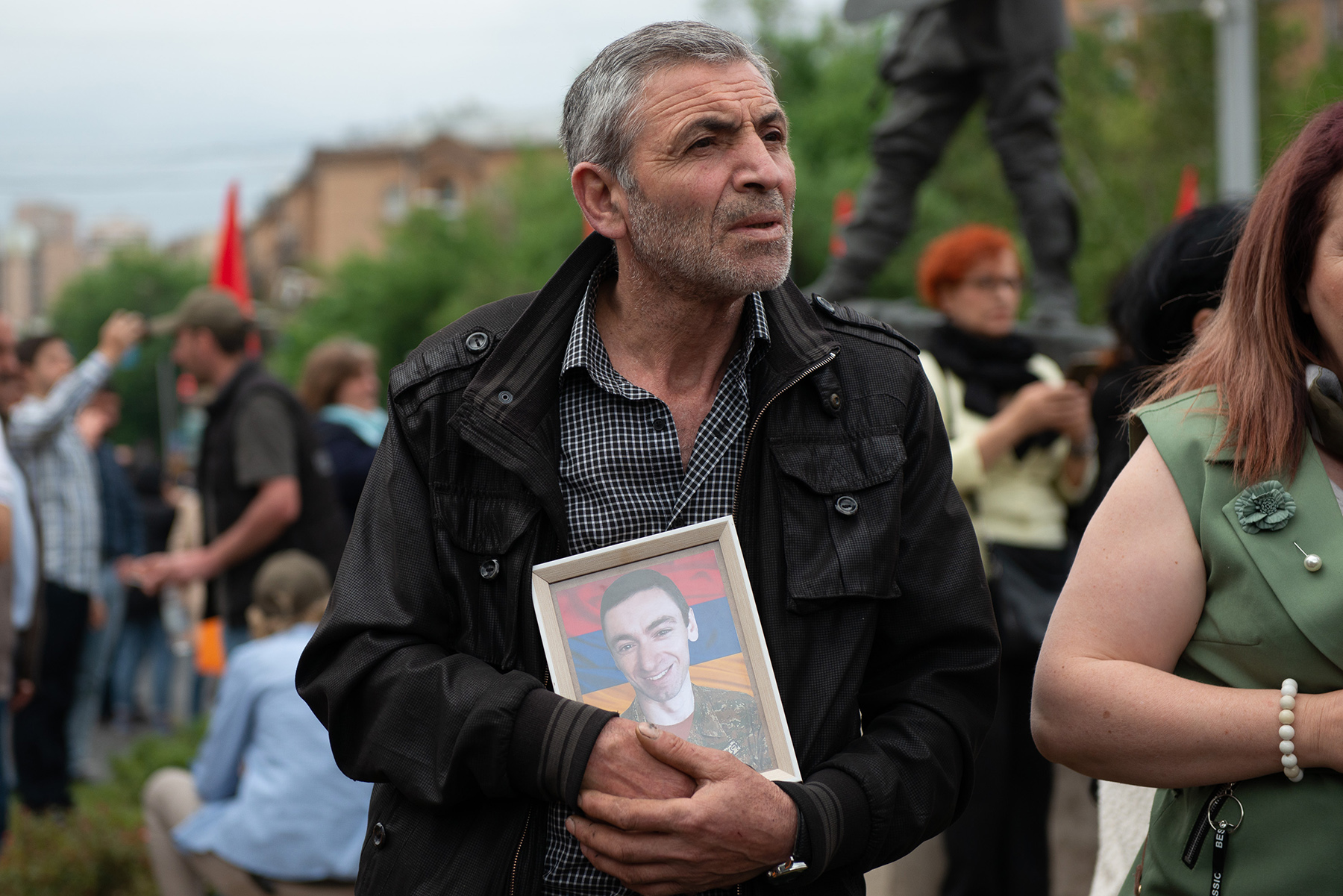
In Pictures | Armenia’s not-so-velvet counter-revolution
Armenia’s opposition protesters remain steadfast in their demand for Pashinyan’s resignation, though they have few specifics on what happens next.
In Pictures | Armenia’s not-so-velvet counter-revolution
 14 May 2022
14 May 2022

Armenia’s opposition protesters remain steadfast in their demand for Pashinyan’s resignation, though they have few specifics on what happens next.
‘We are here in the name of Armenia and in the name of Artsakh’, Hrayr Harutyunyan, a young man hiding from a downpour in a red tenet erected by protesters the previous day, told me. ‘There are no parties here. We are apolitical people. We are here for our future, for our children.’
Ironically, the very tent he used to shelter from the rain was almost certainly paid for by one of the country’s major opposition parties, who had organised this ‘apolitical’ movement.
The protesters have rallied for weeks to demand the resignation of Armenian Prime Minister Nikol Pashinyan and his administration over what they perceive to be a conciliatory attitude towards Azerbaijan and Turkey, especially on the question of Nagorno-Karabakh.


In a recent address to parliament, Pashinyan stated that the ‘bar must be lowered’ when it comes to Armenia’s international position on the status of Nagorno-Karabakh — apparently taking a demand for international recognition of the region as an independent and sovereign state off the table. He has, however, insisted that this would by no means be a ‘surrender’ of Nagorno-Karabakh to Azerbaijan and was in line with the international consensus on the question in peace negotiations over the past three decades.

In form, if not in content, the anti-Pashinyan resistance appears to be self-consciously emulating the 2018 Velvet Revolution led by Pashinyan himself. From France Square as the initial point of the encampment, to road blockades around the capital, to claims of ‘a political’ opposition to the government, down to even black hats with an italicised slogan in Armenian.

‘We don't want Artsakh to be left to the Azerbaijanis’, Haykanush, a 30-year-old Yerevan resident who came to the protest with a toddler in tow, told me. ‘He said we must live together [with Azerbaijan] and that there should be no reason for a war, and that we have to give them Artsakh.’
As for what a post-Pashinyan government would do, most protesters remained vague but forcefully optimistic — the problems Armenia faced, including defeat in the 2020 war with Azerbaijan, were a question of a lack of political will and purposeful betrayal.

‘Nikol is ready to surrender Artsakh’, Mayis, a 48-year-old resident of Yerevan, said. ‘He said himself, we need to lower the bar of what we are demanding for Artsakh. And the plank is just self-determination. Lower it where?’
‘Everything is obvious’, he quickly added. ‘Even to a donkey.’



The villainy of Pashinyan, in the eyes of most protesters I spoke to, could not only be matched by the optimistic possibilities of what an opposition-led government could accomplish.
‘We will have security, we want to restore the army’, Seda, a 48-year-old woman who was at the protest with Haykanush, said. ‘We used to be strong, now, we are not. There is no Armenian ideology, no Armenian spirit, we want to return this.’
‘The question is about direction — a national direction, or a non-national direction. Armen Rustamyan, a leading member of the Armenian Revolutionary Federation party and an MP with the Armenia Alliance bloc, the largest opposition group in parliament, told OC Media next to the main stage in France Square.
Pashinyan, he said, was acting as a herald of ‘Turkfication’ in Armenia.

By conceding a ‘corridor’ through southern Armenia that would allow Azerbaijan to connect its western provinces with the exclave of Nakhchivan, by ‘forgetting the [Armenian] genocide’ as a concession to Turkey, and through ‘economic concessions’, Pashinyan was going to turn the country into a ‘vilayet’ (‘province’ in Turkish) of Turkey.
‘Turks call it not Yerevan but Erivan’, he said. ‘They want to rename many places here.’

The ultimate problem with the current administration, Rustamyan stressed, was that these concessions were not only lethal to the ‘national organism’ but were also completely unnecessary.
‘In 1998, this was exactly the same choice. Peace or war. The first president thought that if you don't make concessions, there will be war’, he said, speaking of the forced resignation of Armenia’s dovish first president Levon Ter-Petrosyan. ‘But for 20 years, there was no war. Twenty years! We have shown that we can develop without making concessions.’







